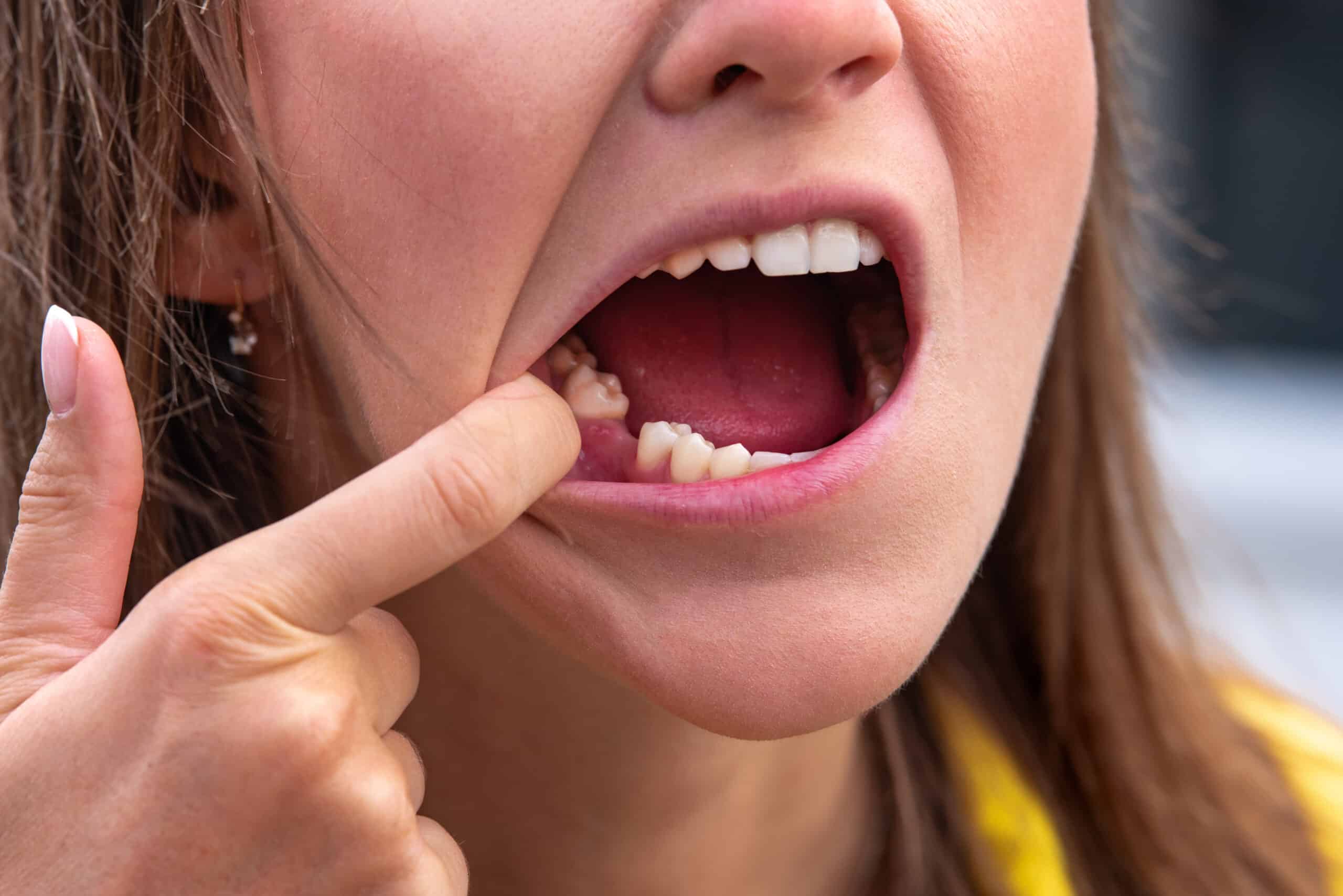If you’ve recently lost a tooth, you might be wondering: Should I leave it alone? Are there negative consequences to not replacing a missing tooth?
When it comes to tooth loss, many people worry about the appearance of their smiles. But tooth loss is more than just a cosmetic concern.
Tooth loss can impact everything from the foods you love to eat to the health and structure of your jaw.
According to the American College of Prosthodontics, nearly 120 million Americans are missing at least one of their teeth. You can experience wide-ranging problems if you don’t replace a missing tooth, and if you wait too long, these issues can worsen.

What Happens If I Don’t Replace a Missing Tooth?
The longer you wait after a tooth extraction, the more bone volume you lose, which becomes more expensive and difficult to replace.
Tooth loss can impact everything from the foods you love to eat to the health and structure of your jaw. If you choose not to get a replacement, you could suffer severe consequences now and throughout your lifetime, such as:
- Difficulty eating and speaking. Your teeth help you eat and communicate. A missing tooth might impact your ability to pronounce words correctly or clearly. The absence of teeth may result in swallowing foods without fully chewing or stopping eating certain foods altogether. Poor nutrition and digestive issues can result from these behaviors.
- Oral health issues. Untreated tooth loss sets the stage for other potential oral health problems. It increases your risk of gum disease and bacterial infections. It also changes the alignment of your remaining teeth, which strains the jawbone and leads to more difficulty chewing.
- Bone loss and facial collapse. You may think a few missing teeth, especially in the back of your mouth, can go unnoticed. Unfortunately, that’s not the case. Your jawbone will shrink as a result of not being stimulated, and your gums will pull back around the missing tooth. This process causes your face to sag and adjacent teeth to weaken.
What Are The Benefits?
Tooth loss can occur as the result of many factors, such as an adult tooth that might have been knocked out as a child and never replaced or experiencing deep decay as you age. Tooth replacement has many benefits, including:
- By maintaining the natural contours of your facial structure, replacing a lost tooth can prevent your cheeks from sagging, restoring a youthful appearance.
- Tooth replacement allows you to chew your food more comfortably and naturally, allowing you to enjoy your favorite foods again.
- Clear communication and a natural smile can make you feel more confident because you’ll enhance your speech and smile.
- Replacing your missing teeth will keep your jawbone strong and help protect against tooth decay and gum disease in the surrounding area, improving your overall oral health.
Restoring missing teeth is crucial to maintaining your smile’s appearance and functionality. Note: The longer you wait after a tooth extraction, the more bone volume you lose, which becomes more expensive and difficult to replace.

How Can I Replace Missing Teeth?
Fortunately, there are many treatment options available for tooth replacement, including:
Whether you’re missing teeth because of tooth decay, gum disease, or an injury, these options are reliable and work well for replacing lost teeth.
- Dental implants are the most natural way to regain your smile. They won’t decay and have the potential to last a lifetime. Implants differ from dentures and bridges because they become part of your jawbone structure rather than sitting on top, and you’ll experience fewer problems with shifting or slipping when eating or speaking.
- Dentures are an affordable option for replacing missing teeth. They consist of false teeth attached to a plastic base to resemble gums. The main benefit is that they are easy to get used to, and you can remove them while eating or sleeping. However, they do require periodic adjustments as your mouth changes shape.
- Dental bridges fill a space that a tooth previously occupied. Bridges usually consist of two crowns on either side of the gap, with false teeth between them. They are fixed into place with dental cement or other adhesives, making them semi-permanent, and last for many years if properly cared for. Note: you’ll require occasional adjustments over time due to shifts in your jaw.
Whether you’re missing teeth because of tooth decay, gum disease, or an injury, these options are reliable and work well for replacing lost teeth, but discussing the options with a professional is the only way to ensure you get the specific treatment needed. The cost will vary depending on the replacement option, the number of teeth you need to restore, and even your location.
At Asheville Dental, our team is dedicated to restoring your natural, white smile. Instead of suffering undue pain and further damage to your teeth because of a missing tooth, contact us today, and let’s discuss solutions to help get your oral health back on track!





